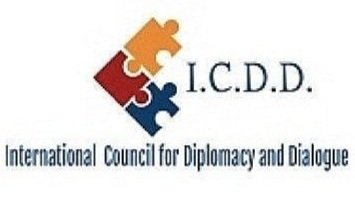GENDER EQUALITY CHARTER
OUR COMMITMENTS
Definition of professional equality between women and men:
It is "the equal visibility, autonomy, responsibility and participation of both sexes in all spheres
of public and private life" (Council of Europe definition). In the workplace, it refers to equal
treatment of women and men in terms of access to employment, training, mobility and
promotion or in terms of equal pay.
Parity means an equal numerical presence of men and women in a company.
ICDD goes further in its commitment because it includes all the forms of discriminations bound
for example to the gender, to the ethnic and social origins, to the language, the religion or the
convictions, the opinions, the handicap, the age or the sexual orientation.
Because the stakes of such a positioning are multiple and that all the forms of diversity must be
valued within our organization, the present charter anchors the commitment of ICDD in the
respect of values and good practices.
In addition to the application of the legal framework, which encourages companies to be fairer
and more equitable, equality must be a daily commitment that proves to be a very good source
of professional efficiency. The more complementary and diverse a team is, the more it will
bring results and performance.
ICDD invites its members and partners to adhere to the present Charter, to take position on the
principles of the equality Women / Men but also of fight against discriminations and to make
known and implement their commitments in the domain. This policy concerns members,
service providers, trainees, and partners alike.
APPLICATION OF GENDER EQUALITY IN THE INTERNATIONAL COUNCIL
FOR DIPLOMACY AND DIALOGUE
ARTICLE 1: Recognizing and promoting gender equality
In all of the Organization’s projects, in conjunction with our partners, we recognize, respect
and promote the rights and principles of equality between women and men, and combat gender-
based obstacles and discrimination. This must be verified in all bodies, at all levels and for all
categories.
ARTICLE 2: Fight against discrimination
We commit ourselves to fight against multiple discriminations allegedly based on gender,
ethnic and social origins, language, religion or beliefs, opinions, disability, age or sexual
orientation in order to concretely promote equality between women and men.
ARTICLE 3: Questioning the place of each person in the organization
We voluntarily commit to questioning the respective place of men and women in our
organization, which articulates a set of norms, statutes, rituals, rules and behaviors often marked
by the seal of gender stereotypes.
We are committed to raising awareness and/or training the members of our team, of our
organization, to identify and transform mental representations, attitudes and stereotyped or even
sexist behaviors.
ARTICLE 4: Promoting criticism of stereotypes
We commit ourselves to fight against stereotypes and to prevent, as much as possible,
prejudices, practices, verbal expressions and images based on the idea of superiority or
inferiority of one or the other gender, or on stereotyped female or male roles. We are committed
to raising awareness about the counterproductive role of gender stereotypes in achieving
equality between women and men.
ARTICLE 5: Training and awareness-raising for staff on their rights and duties
We encourage staff of all categories to participate in gender equality awareness-raising and
training activities. Furthermore, we undertake to inform the staff concerned, as well as the
management of the components and services, of the rights and duties of each person with regard
to maternity or paternity leave, parental leave, and the rights of part-time work. We will thus
ensure that the careers of staff are not penalized because of maternity (and other situations:
single-parent families, handicapped children, etc.) and in particular take into account the
consequences of maternity for the career development of female employees.
ARTICLE 6: Protecting our employees
We take note of the fact that information on the rights of victims of harassment and the help
they can receive should be widely disseminated to staff, to the management of components and
services, and in general to be vigilant with regard to situations that could lead to violence.
